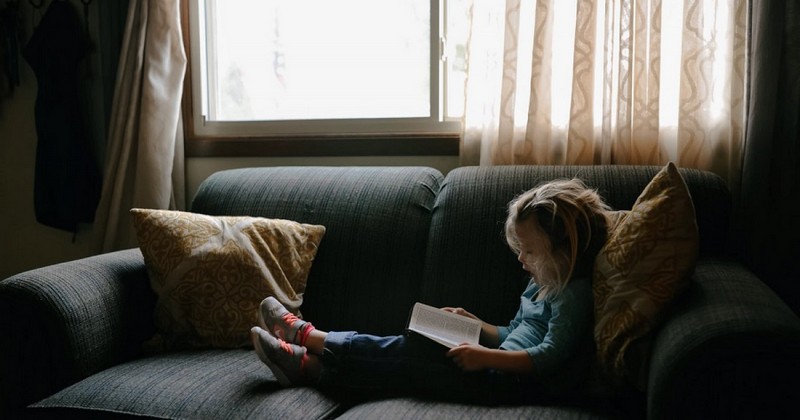How to live better the confinement with your children: 7 advices

Some recommendations to follow in order to avoid problems when facing confinement with young children.
For many families, the health and economic consequences of the pandemic generated by the coronavirus are only part of the problem to deal with on a daily basis.
Having to spend many days in a row in a situation where young children can hardly go outdoors is also hard on parents who are already under a lot of stress during these days.
So here are some useful tips on how to here are some useful tips on how best to coexist with your children during the confinement caused by the during the confinement produced by the outbreak of COVID-19.
Living better with your children during confinement: what to do?
Follow these guidelines to improve coexistence with your children at home.
1. Establish schedules
It is very important to contribute to a structured daily life for the little ones. The fact of practically not leaving the house makes it easier to lose track of time, and feeds the predisposition to lose a lot of time.It encourages the predisposition to waste a lot of time looking at a screen, for example, while other important aspects of life are neglected.
So, agree with your children what should be the structure of the schedule they will follow; do not just impose it unilaterally, try to involve them in its creation to make it more meaningful for them. Once "designed", hang it in a place in the house that is very visible to the little ones.
2. Create a space for free expression of emotions
The family context cannot be a pressure cooker in which it is necessary to repress what we feel so as not to bother others. Therefore, as a matter of course, create situations in which the children can express their worries, doubts, concerns, etc. However, if they have nothing to say, do not insist; this should not resemble an interrogation.
Try to be as spontaneous as possible when conversing with the little ones. Y If at any time someone is particularly distressed, anxious and emotionally vulnerable in general, don't overlook it; give them the attention they deserve.Give them the attention they deserve and try to help in the moment. It would be a mistake to pretend that nothing is wrong in order to try not to panic.
3. Make sure that the rules of coexistence are clear.
Avoid at all costs trying to implement very complex rules of coexistence and with several exceptions: it should not cost anything to memorize them. Think of the coronavirus crisis as stressful enough for your sons or daughters without having them always on the lookout for unwitting rule-breakers. that you can't expect them to always be on the alert in case they are unknowingly breaking rules.
4. If you have several children, encourage leadership roles.
Parents have a very important role to play in giving affection, providing sustenance and enabling children to learn; however, there is one thing we adults can hardly achieve: to be their true role models when it comes to "what's cool" and what's not.
That is why, if possible, we should take advantage of the possibility for older siblings to help raise and educate younger siblings: if they are not too many years apart, they have more experience and maturity development than the youngest in the house, but not enough so that their ways of seeing life are totally disconnected. A boy or girl will almost always try to look like other youngsters who are a little older than him or her.
Thus, in times of confinement, it So in times of confinement, it doesn't hurt to have older siblings lend a hand: they will lighten your workload as a parentThey will lighten your workload as a parent, and at the same time learn to take on new responsibilities.
5. Lead by example
None of the above will be of much use if your day-to-day behavior shows that the rules of coexistence and the new habits you intend to establish to better manage the confinement do not have much value for you. Therefore, show that you are serious about these measures, show that you take these measures seriously, both in the way you put them into practice and in the way you apply them to yourself. to you.
6. Try Mindfulness
Mindfulness is a set of practices inspired by Vipassana meditation that have proven to be effective in keeping negative emotions linked to anxiety and low mood at bay. In addition, as they are very simple to perform, even a child can learn basic Mindfulness exercises..
7. If necessary, turn to professionals
During the weeks of confinement at home due to the pandemic, psychologists continue to work thanks to online therapy services, via video call.
If you are looking for professional support to better manage the coexistence with your children or help them to manage their emotions, you can contact us. At PsicoTools we do child and adolescent therapy and we are also experts in Mindfulness. To see our contact details, access this page.
Bibliographic references:
- European Centre for Disease Prevention and Control. (2020) Outbreak of acute Respiratory syndrome associated with a novel coronavirus, China; First cases imported in the EU/EEA; second update. ECDC.
- McLaughlin, K.; Behar, E.; Borkovec, T. (2005). Family history of psychological problems in generalized anxiety disorder. Journal of Clinical Psychology 64 (7): pp. 905 – 918.
(Updated at Apr 14 / 2024)